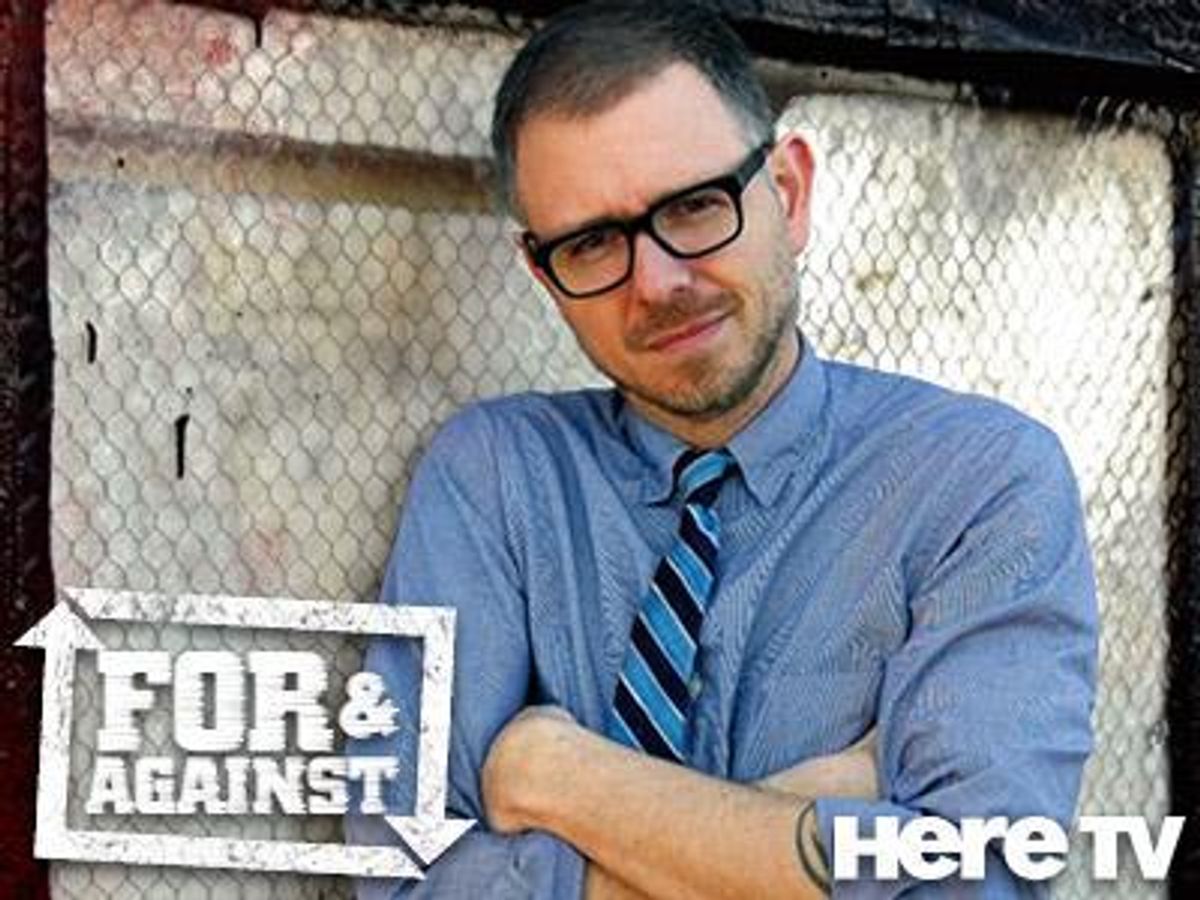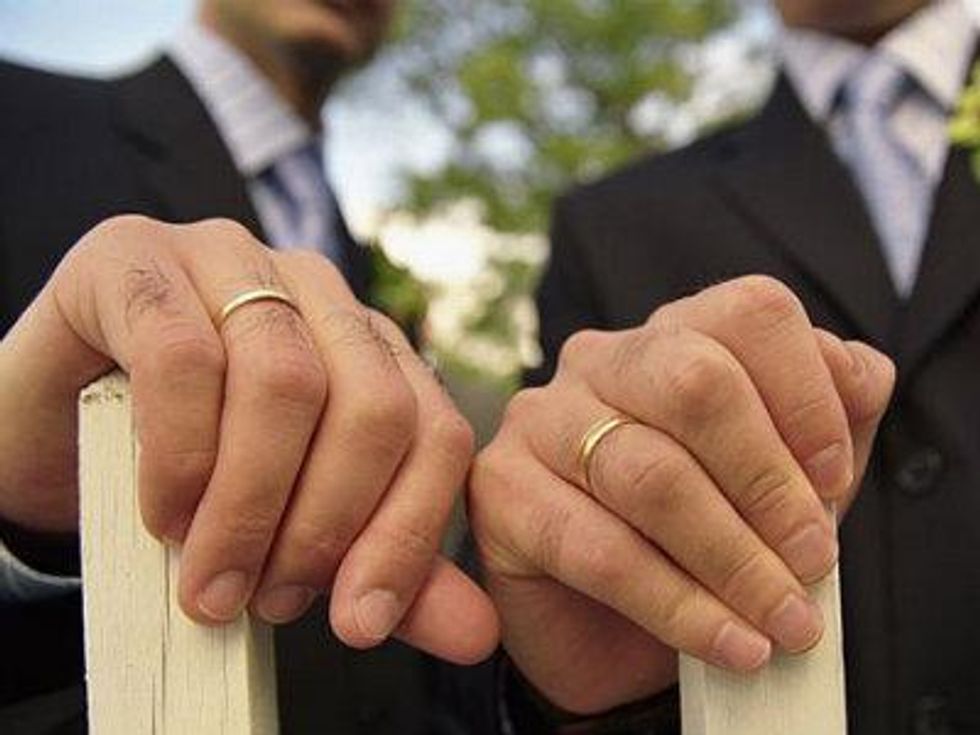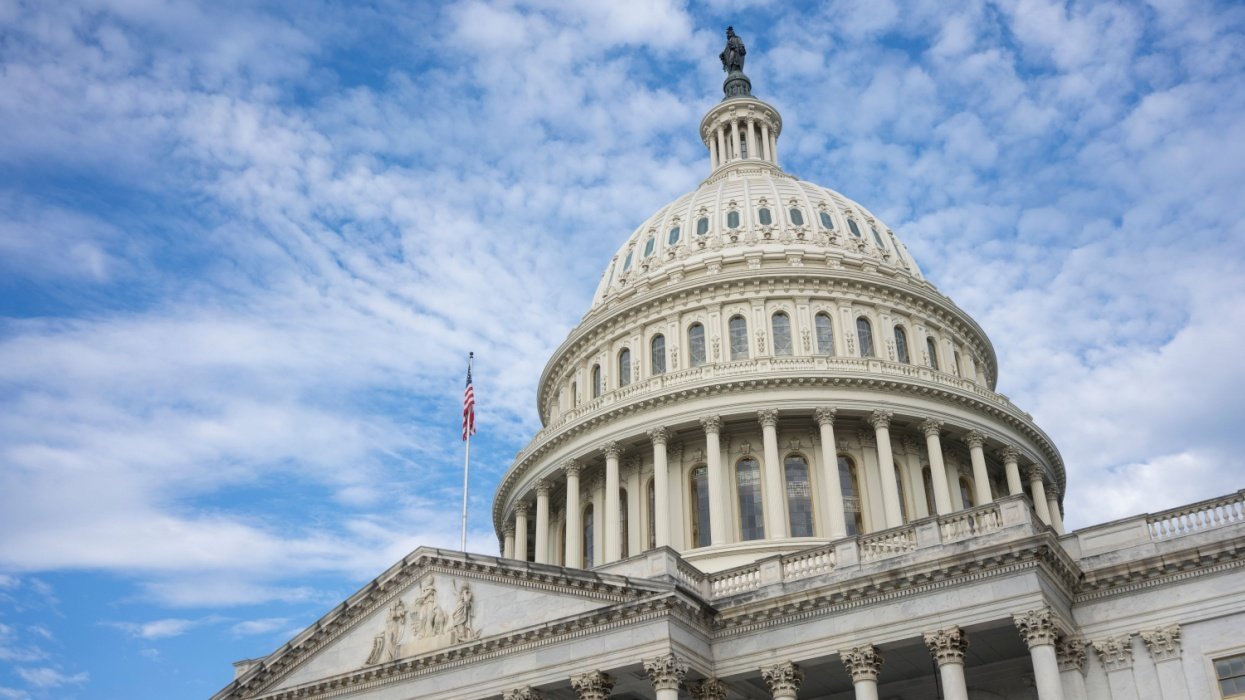A lot of people have been talking about conservative New York Times columnist David Brooks's piece on marriage equality earlier this month. The argument he makes is pretty much as old as, well, making arguments.
In fact, Plato made Brooks's same argument in The Republic: Namely, that one should lead a life where his desires and unbridled freedoms are ordered around something higher. Plato was critiquing the "democratic man," who is unordered, takes advantage of his freedoms, and gives in to every desire like a shopper at a bazaar.
In his column, Brooks (clunkily) drops the fight for marriage equality into that equation, heralding the now-complete arrival and acceptance of gays into civil and civilized society. Brooks says that gays have grown up enough to "surrender" our freedoms for something bigger, better, and nobler. He writes:
"Whether they understood it or not, the gays and lesbians [have] committed themselves to a certain agenda. They committed themselves to an institution that involves surrendering autonomy. They committed themselves to the idea that these self-restrictions should be reinforced by the state. They committed themselves to the idea that lifestyle choices are not just private affairs but work better when they are embedded in law."
Whew. I'm so thankful someone figured that out for us -- and a conservative, no less. Too bad he's wrong.
First off, his attempt to use the fight for marriage equality as the vehicle for his argument is a typical example of someone who just doesn't get it. How can you tell? Once he drops the "lifestyle" bomb, he's done. By using "lifestyle," he betrays that he just doesn't grasp that gays and lesbians aren't defined by the things we do but who we are.
Maybe Brooks doesn't want the reader to know he's rehashing Plato, because the upshot of what he's implying is that LGBT people are indeed disordered and it's great we're giving some of that up. Which is the problem, whether it comes from religion or some bogus natural law theory of sexuality... or society. Oddly and thankfully enough, he's not that free to say, that I guess. Here's to losing some freedoms after all. At least Plato had the courage to say he thought the "democratic man" was disordered and could do better.
To be sure, even within our own community there are debates about sexuality, identity, whether there really even is an "us." But that's not even the point either, because this is simply about who we are in the eyes of the law and seeking equal treatment by our government. It's not about giving up freedoms or gaining admission to a white-picket-fenced hetero world; it's simply about getting "equal justice under law."
In fact, I'd suggest that marriage equality has nothing to do with "freedom" at all (despite the names of organizations like Freedom to Marry). Federal and state recognition do not limit our freedom. They just give us something (benefits, recognition, access to things, etc.) that laws based on bigotry, religion, or both have denied us.
Indeed, we've been pretty good at being more "free" than most heteros, defining our own relationship rules, family structures, and child-rearing strategies. That doesn't need to change with a civil marriage license, unless one wants it to.
Which gets to the second way Brooks misses the point: We will make our marriages however we want them to be, thank you very much. They certainly don't have to fit Brooks's or anyone else's hetero-patriarchal "definition" of how marriage "should" order one's citizen-soul under the aegis of nobly restricting some Judeo-Christian definition of licentiousness.

Of course, some married same-sex couples will want the type of marriage we can safely assume Brooks has in mind. If so, go for it. Some may want a wonderfully complicated (or not) non-monogamous marriage while still desiring the financial and other benefits bestowed upon "traditionally married" couples. Other LGBT people will want something else. And on and on. That's the wonderful power of the LGBTQ perspective and critique -- it's about (I hope) challenging norms. At least sometimes.
It's just as likely that we will add our own perspective to marriage and not always assimilate into its hetero-patriarchal conception. Besides, haven't the straights done enough damage to the institution of marriage?
In the end, it's amusing to watch the unfolding gymnastics. Now that society is tossing so much historical bigotry aside, conservatives like Brooks seem to be looking for ways to make us palatable to themselves. They know this ship is sailing, so they're figuring out ways to jump on board and still sleep at night, ideologies intact.
What I'm more worried about is "us" buying too much into Brooks's reasoning that the LGBT focus on marriage equality means we're ready to conform, reform, and renounce or "unordered" behavior. One has to question just how right Brooks is when he says:
"Once, gay culture was erroneously associated with bathhouses and nightclubs. Now, the gay and lesbian rights movement is associated with marriage and military service. Once the movement was associated with self-sacrifice, it was bound to become popular."
It's frustrating to me that the fight for those "mainstream" things does tend to eclipse other equally important issues. Why aren't we talking about Bradley Manning, arguably an LGBT hero who has been treated cruelly and violently because he's queer?
Why is there silence from our advocacy groups on his cause? Is it because Manning challenges the prevailing power structure to which we are now more fully admitted, literally with the repeal of DADT? If Bush or Romney were president, would HRC or GLAAD or whoever be making more noise about our LGBT brother? Where's the outcry on HIV criminalization?
I am often one of those who fear that the fight for marriage equality presents problems for our community's unique contribution to humanity. The lawyer in me won't give up on the simple fact that the Constitution indeed requires equal treatment under the law, so marriage rights should be fought for and secured.
But critiquing the patriarchal institution of marriage and the current movement's overemphasis on military solutions and militarism in general from a queer (or gay or lesbian or transgender) perspective must not be lost. If it does get lost, then Brooks will end up being right, not because we've surrendered our freedoms, but because we've forgotten who we are and our capacity to liberate culture on many levels.
JIM MORRISON is host of HereTV's political talk show For & Against. New episodes premiere this coming week.


















































































